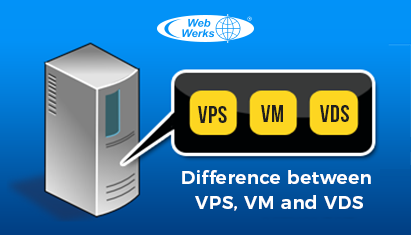Most entrepreneurs and IT heads perceive that virtual hosting services are flexible, easy on pocket and effective substitute to a physical on-location server. Imagine a scenario you set up a meeting with a VPS hosting provider. During the meeting, the provider uses the terminology such as VM, VPS, and VDS. While pretending to listen to his conversation somewhere in your mind you are trying to figure out what exactly these terms are? What do they mean? And you so much want to take out your phone and Google it but it will not look professional in a meeting. So, I would suggest reading as much as you can before choosing the hosting plan for yourself. Not much but at least essential elements. In this blog, we will discuss the key difference between VPS, VM, and VDS. In the world of hosting industry, VM stands for Virtual Machine. It is an operating system (OS) or application condition that is installed on programming, which imitates dedicated hardware. In this environment, the user will experience the same condition as they would on a dedicated hardware. VPS hosting stands for Virtual Private Server hosting. A physical server is located in a server farm, the location of which relies on the hosting provider you're utilizing. A VPS is a portion of one of these servers that contain its own operating system, bandwidth, and disc space. These physical servers will be divided into numerous diverse VPS, dedicated, or shared servers. A VPS will be utilized as a dedicated server and can be tailored as per clients preference. Mostly shared servers come with an existing hosting environment and certain settings effectively built-in. A VPS acts like a dedicated server but definitely more cost effective. Additionally, they can be modified to your preferring, in case you have the technical chops. Also, Virtual private servers usually run a standard operating system, for example, Windows or an appropriation of Linux, and the operating system is kept up by the virtualization stage. VDS stands for Virtual Dedicated Server. VDS is an Infrastructure as a Service (IaaS) cloud offering that enables clients to plan an isolated server over the Internet. It offers usefulness and assets like an in-house server, however, is managed on a rental premise by a cloud service provider. A VDS gives small-full scale server instances, contingent upon the supplier's resource requirement and capacities. When provisioned to a customer, a VDS isn't divided any further to different clients and, subsequently, does not offer multi-tenure. A VDS is mixed with complete server equipment, alongside the operating system, which is supported by a remote access layer that permits end clients to globally access their server through the Internet. But there are few hindrances to VDS hosting. It is substantially more costly because of the way that a VDS account will expend a larger number of assets than a VPS account. You will likewise have less support when working through a VDS, as your business might be in charge of the operating system and programming that keeps running under the hypervisor. In case you need to host a single website, VPS hosting is decent, to begin with! VPS hosting offers some scalability, predominant convenience, and a low cost compared to VDS as well as the physical dedicated server. But, VDS hosting is an awesome option to a physical server, especially if you are looking for a root-level access to your server and making plans keeping future development in mind. Understanding the key contrasts between virtual machines, virtual private servers, and virtual dedicated servers will help you to take final call for your web hosting plan. Remember server virtualization can be worthwhile when used properly, and with the correct hosting provider, you can successfully meet any of your server needs with virtual items.

